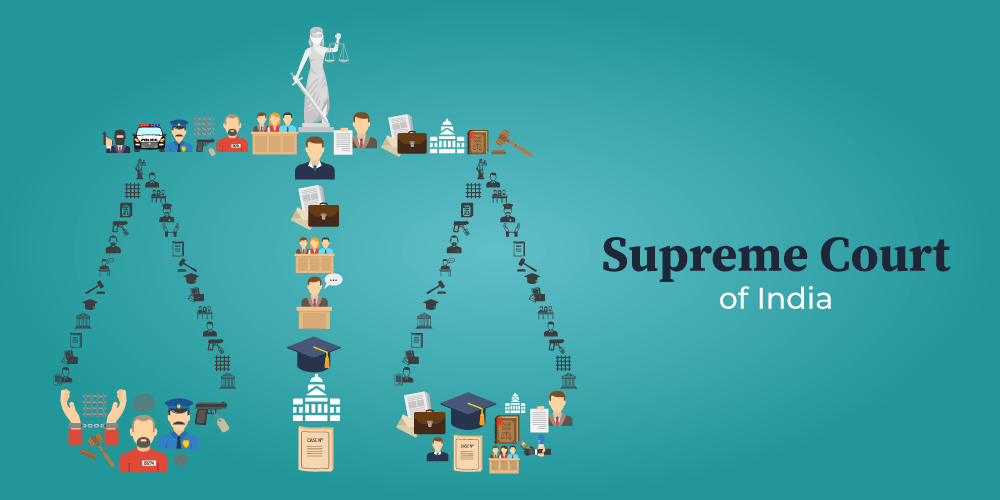Two Judgments And The Principle Of Accountability
Context:
Last week, two of the Supreme Court of India’s Constitution Benches issued significant rulings. In the first case, it was determined that the Delhi administration, led by the Chief Minister, and not the Lieutenant Governor chosen by the federal government, would be in charge of the civil service. In the second instance, the Shiv Sena party’s “split” led to the creation of the current Maharashtra administration.
Delhi Judgement
- Context: Delhi is a Union Territory with a legislature, which means it has its own elected government but ultimately reports to the Union government administratively.
- Article 239AA: Under Article 239AA of the Indian Constitution, the Union government and the Delhi government have different levels of authority. The structure for Delhi’s administration and governance is established in this article.
- Disagreement: The question at hand was which government—the Union government or the Delhi cabinet—should be responsible for the civil services in Delhi.
- Parliamentary Democracy Interpretation: The Supreme Court looked at the idea of parliamentary democracy, which denotes a democratically elected government. A triple chain of command establishes this accountability.
- Triple Chain of Command: By the Supreme Court’s decision, the triple chain of command is as follows:
a.) Civil service employees are answerable to Ministers: Civil servants are supposed to carry out the policies and decisions of the elected government, which is represented by the Ministers.
b.) Ministers are answerable to the legislature: Ministers are accountable to the elected legislature for their decisions and acts.
c.) The legislature is answerable to the electorate: The elected legislature is answerable to the electorate and represents the will of the people.
- The Supreme Court concluded that breaking any link in this three-way chain of command would go against the tenets of parliamentary democracy. In other words, the democratic system would be compromised if the accountability between civil service employees and Ministers or between Ministers and the legislature was broken.
- The Delhi Cabinet must receive reports from the civil services in the Delhi government, and the Supreme Court decided based on these principles. The democratic process will operate without a hitch thanks to this ruling, which strengthens civil workers’ obligations to the elected government.
Maharashtra Judgement
- Background: Two factions of the Shiv Sena party in Maharashtra had issued contradictory whips. A whip is a directive issued by a political party to its members, instructing them to vote in a particular way on a specific issue.
- Anti-defection law: The anti-defection law in India tries to deter political defections by disqualifying lawmakers who disobey the party whip on significant votes. The Tenth Schedule of the Constitution governs this provision.
- Recognition of the whip: In this case, the Maharashtra Speaker had acknowledged the whip of one of the factions as standing in for the party. This distinction is essential because it establishes which group has the right to give binding instructions to each Assembly member of the party.
- Legal dispute: A legal disagreement emerged on whether the faction had the authority to choose the leader and whip of the legislature party as a result of the conflicting whips and the Speaker’s endorsement of one faction’s whip.
- Court intervention:
- Following Eknath Shinde’s resignation from the Shiv Sena party, the Maharashtra Chief Minister was subject to disqualification proceedings by the Supreme Court.
- The court ruled that the then-Governor Bhagat Singh Koshyari “erred” in requesting a trust vote, which ultimately resulted in the Maha Vikas Aghadi (MVA) government led by Uddhav Thackeray’s resignation in the middle of 2022.
- However, the court also found that because Mr. Thackeray had already resigned prior to the floor test, Governor Koshyari had enough reason to invite Mr. Shinde to form the new administration.
Points to Ponder:
- The paragraph analyses two rulings by India’s Chief Justice that reflect opposing ideologies about how accountable MPs should be in a parliamentary system.
- The Delhi ruling affirmed the parliamentary democracy premise, which presupposes a government answerable to the people via a threefold chain of command.
- In the Maharashtra case, which involved opposing whips given by political party factions, the Court determined that the political party, not the legislature party, has the authority to issue directives.
- The Maharashtra decision weakens legislators’ accountability to the electorate and strengthens party leadership’s control over the legislature.
- The argument made in the text is that the anti-defection law is in opposition to the democratic principle of voter responsibility.
- It is an inaccurate view of representative democracy to think that any vote against the party line constitutes a betrayal of the electoral mandate.
- The paragraph makes the argument that voters make judgements based on a variety of reasons other than party identification, as shown by election results in which party defectors were re-elected under a new party.
- The passage calls for a reexamination of the anti-defection statute, claiming that it contravenes both the Constitution and the fundamental principles of parliamentary democracy.
- It recommends that the Supreme Court’s full bench revisit the matter and determine whether the anti-defection law is consistent with the values of accountability and representative democracy.
- The passage emphasises the necessity of upholding the fundamental tenet of parliamentary democracy, which is a component of the Constitution’s core framework and reclaiming the accountability of governments to the people.
- It states that a seven-judge bench should widen the inquiry to consider whether the anti-defection law violates the fundamental framework while hearing a case pertaining to the Speaker’s capacity for independent and impartial decision-making.
- In the end, the text stresses how crucial it is to guarantee that lawmakers are answerable to the people and that the anti-defection law shouldn’t compromise parliamentary democracy’s democratic foundations.
Similar Topics:
SUPREME COURT VERDICT ON ECI APPOINTMENT





